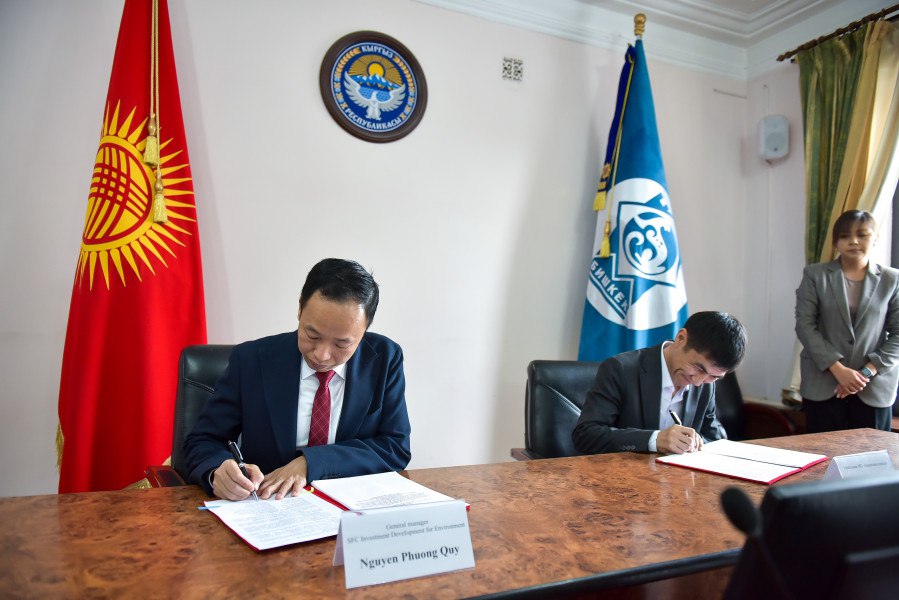For a long time now, there have been murmurs about the growing problem of water shortages in Uzbekistan. Every citizen is likely to remember, at the very least, public service announcements on television with calls to conserve water. Still, the issue began to really attract people’s attention after the last, rather unexpected hike in cold tariffs. Was this an indication of the situation deteriorating? What is going on with water resources, and what should we expect moving forward? To find out, we talked to Nargis Kosimova, an eco-journalist, teacher, media trainer, and doctor of philology, who has come to fame as the author of Ekolog.uz.
What is the current situation with drinking water in Uzbekistan?
The problem with water resources is particularly serious in Uzbekistan, now. Experts say that by 2030, the water deficit could reach 7 billion cubic meters, and this could double by 2050. Unfortunately, the climate is changing at a rapid pace. Our key rivers, the Amu Darya and Syr Darya, have seen their discharge decline 20% in just 50 years. Currently, we are also seeing dust storms and droughts, which are exacerbating the problem of water scarcity. The result may be a rise in the cost of fresh water and, consequently, food prices, with the entire economy of the country affected in turn.
For example, over the past 15 years, the amount of water used per person in Uzbekistan has roughly halved from 3,000 cubic meters in 2008 to 1,500 cubic meters by the end of 2022. Nevertheless, water consumption per capita is still very high. For example, in Germany each person uses just 312 cubic meters of water each year, meaning that even though they have plentiful resources, Germans conserve a lot of water.
Last year, we conducted a training session which was attended by 60 farmers. Unfortunately, not one of them, as they told us, had switched to water-saving technologies. When asked why not, they gave a wide range of answers, from a lack of money to the phrase, “why [should we] if there is still water?”
What measures can be taken to help avoid a water crisis?
Many experts highlight drip irrigation as an effective way to rationally utilize resources. Even the Ministry of Water Resources noted that switching to this system would significantly reduce the stress on the country’s reserves. And at the same time, yields would increase significantly.
Increasing prices on drinking water can also help avoid a crisis situation, while control over water usage should also be strengthened. A 100% transition to water-saving technologies in agriculture is needed, as well as protecting rivers from erosion. In Uzbekistan, starting on May 1st, an indefinite moratorium on the extraction of ore from the beds of large rivers will come into effect. Increasing construction and urbanization has led to almost uncontrolled extraction of sand and gravel, as a result of which riverbeds have been nearly degraded and the water has practically disappeared from these rivers. Moreover, it is not just water that has begun to disappear, but also biodiversity.
And, of course, for household needs, we still need to switch to processed water. The dumping of sewage and wastewater into rivers – which is common in our country today, especially by developers and private enterprises – must be regulated.
In addition, the population still doesn’t know anything, for example, about virtual water – the water that is used for processing products and in the manufacture of various goods. Roughly speaking, it takes 20,000 liters of virtual water to produce a kilogram of pilaf, approximately 15,400 liters goes into producing a kilogram of beef, and 1,700 liters to grow a kilogram of rice.
In your view, is the recently announced hike in cold water tariffs related to the water situation in our country?
In 2023, the president held a conference call where measures to prevent a water crisis in the country were discussed. One of the tasks he set was precisely this, hiking tariffs for drinking water. Water itself has no cost in the country; only its delivery to populated areas is priced.
What is being implemented to ensure the population does not sooner or later lose access to water?
Back in 2013, the regulation “On the Procedure for Water Use and Water Consumption in the Republic of Uzbekistan” was adopted. It was therein that such concepts as water consumers, water use, water bodies, water resources, etc. were laid out for the first time.
Last year, people began to receive fines ranging between UZS300,000 ($24) and UZS900,000 ($72) “for the unreasonable use of water.” If this is committed by officials, then it can increase from five to ten base calculation units (BCUs), which would be about UZS3.5 million ($280).
Our @eklguz_bot Telegram channel receives a lot of messages about the irrational use of water, about pollution of open reservoirs by businesspeople, developers, and ordinary people alike. It seems advisable to me to begin the construction of water purification plants in all populated areas in Uzbekistan. At this time, only large cities have them, while in the provinces the water is currently treated only to get rid of garbage, and sewer water is discharged into rivers, canals, and open reservoirs. I would really like the government to pay attention to this, and for every businessman and developer to install water treatment equipment when a new residential complex id built or an enterprise is set up. Purified water could be reused in everyday life.
I would like to add that the government has set out a concept for the country’s comprehensive development until 2030, in line with which market mechanisms are already being introduced for water consumption, while the development of irrigation systems is underway through the construction and reconstruction of irrigation canals and their hydraulic structures.
The government also plans to provide the population with high-quality drinking water by 2030, although I don’t know how realistic that is as the plan targets 100% of the population, even though 60% still use artesian wells and the issue of water becomes increasingly serious every year.
What are the consequences of water depletion?
As it stands today, the economy of Uzbekistan is losing around $5 billion a year due to water scarcity. But if we consider the future, the consequences could be, for example, the commercialization of water resources and their treatment as nothing more than a commodity. And all this will, of course, be in the hands of the countries upstream, mainly Tajikistan and Kyrgyzstan. Plus, we know Afghanistan is already building its own canal. All this poses certain risks, in particular the potential outbreak of armed conflicts against the backdrop of water shortages, as well as a limited supply of drinking water, shortages of water for fields and electricity, a reduction in crop yields and, finally, more and more climate migrants.
It would be good to develop a common code for Central Asia on water use that takes into account the interests of each country in the region. A Central Asian institute for joint research of regional water issues should also be established, since small, seemingly insignificant conflicts, which are already visible today, could over time develop into big ones.
The government and citizens of Uzbekistan should understand the importance of water conservation. Water is not only vital to our existence, but is also a key resource that enables our societies to function and supports economic development.
For each of us, this means taking simple but important steps to conserve water in our daily lives. We can reduce water consumption by monitoring the condition of water supply systems and eliminating leaks and replacing old faucets and showers with low-flow models. This also includes optimizing the use of washing machines and dishwashers, reusing water, limiting shower times, and family education. Remember, there is no alternative to water.








